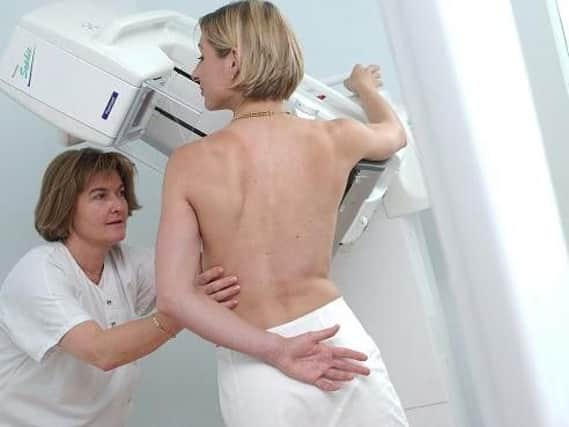'˜Postcode lottery' breast cancer care and survival


A report by the All-Party Parliamentary Group on Breast Cancer (APPGBC) uncovers a “postcode lottery” in diagnosis, treatment and care across England, with women in worst-affected areas found to be more than twice as likely to die from breast cancer under the age of 75 than those elsewhere in the country.
Wigan’s own mortality rate from the illness is only slightly above the national average.
Advertisement
Hide AdAdvertisement
Hide AdFollowing a year-long inquiry, taking evidence from NHS leaders, clinicians, patients and charities, the report found that while overall outcomes for breast cancer are improving, stark geographical inequalities exist across England in screening, early detection and access to treatment and services.
MPs today called for NHS England and Public Health England to intervene to address the geographical variation in breast cancer services across England.
Worryingly, over one in five of mammography posts were vacant in the North West. The authors say these shortages can severely impact the speed at which patients are diagnosed and therefore treated. But despite staffing pressures, 93.5 per cent of patients in the region were seen by a specialist within the recommended two weeks, compared to just 84.5 in the South West.
Overall, the North West performed above the national average (71 per cent) for early detection, with 74.2 per cent of breast cancers detected at early, more treatable stages. In Bolton CCG – the highest-performer in the region – 81.9 per cent of breast cancers were detected at early stages, compared to 70.7 per cent in Wigan Borough CCG, and just 61.6 per cent in the South East.
Advertisement
Hide AdAdvertisement
Hide AdNorth West mortality rates varied from as low as 17 per 100,000 people dying from breast cancer before the age of 75 in St Helens, to as high as 28.1 in Southport and Formby. The Wigan rate is 21.4 and the English average 19.8.
Craig Tracey MP and Dr Philippa Whitford MP, APPGBC co-chairs, said: “Our report uncovers widespread differences in the diagnosis, treatment and care of women with breast cancer, based on where they live. In particular, the current shortages in the breast cancer workforce in the North West, along with missed screening targets, are incredibly alarming and must be addressed.
The number of women developing breast cancer is steadily increasing and local NHS services must be fully resourced to meet this demand.”